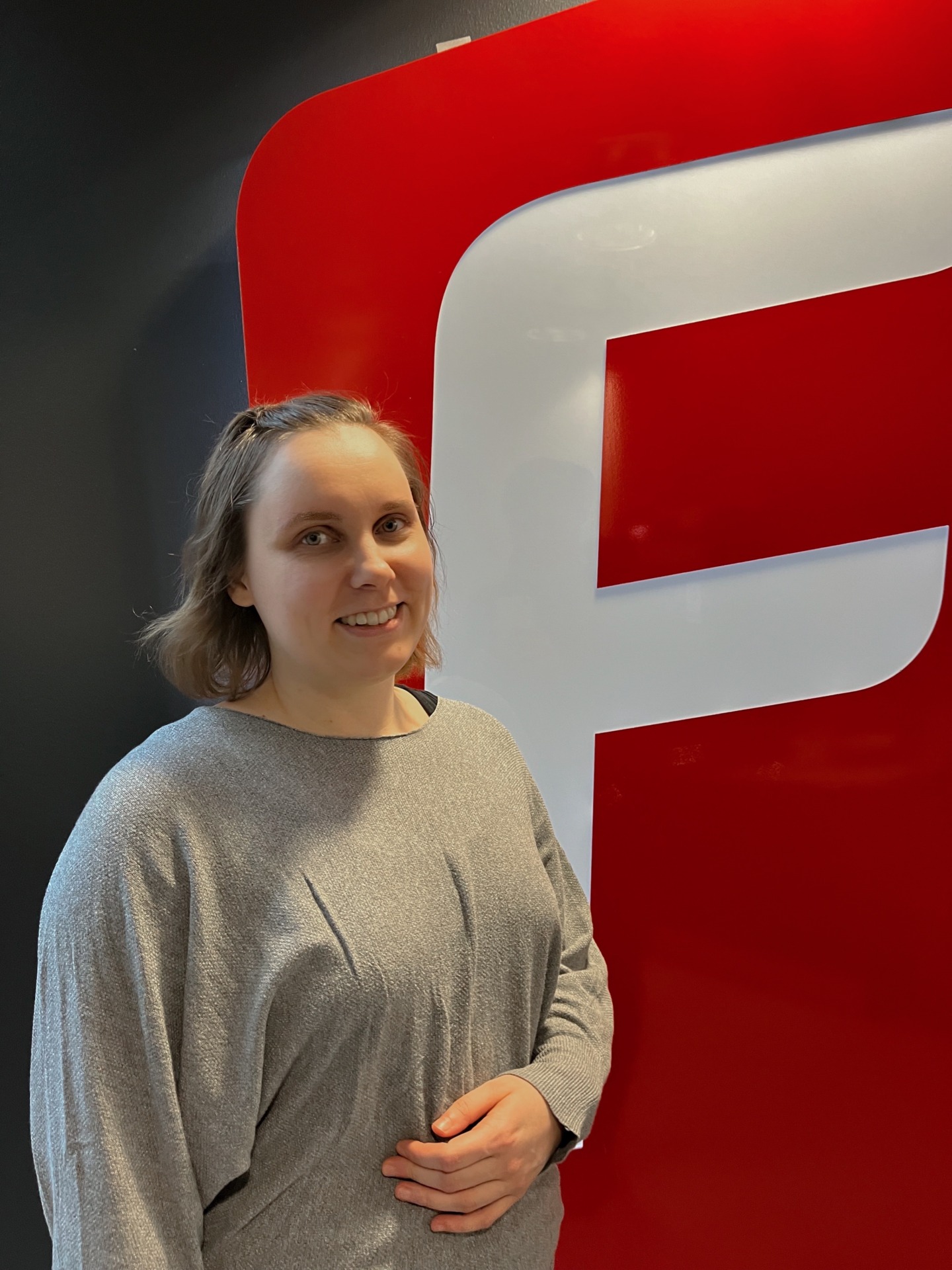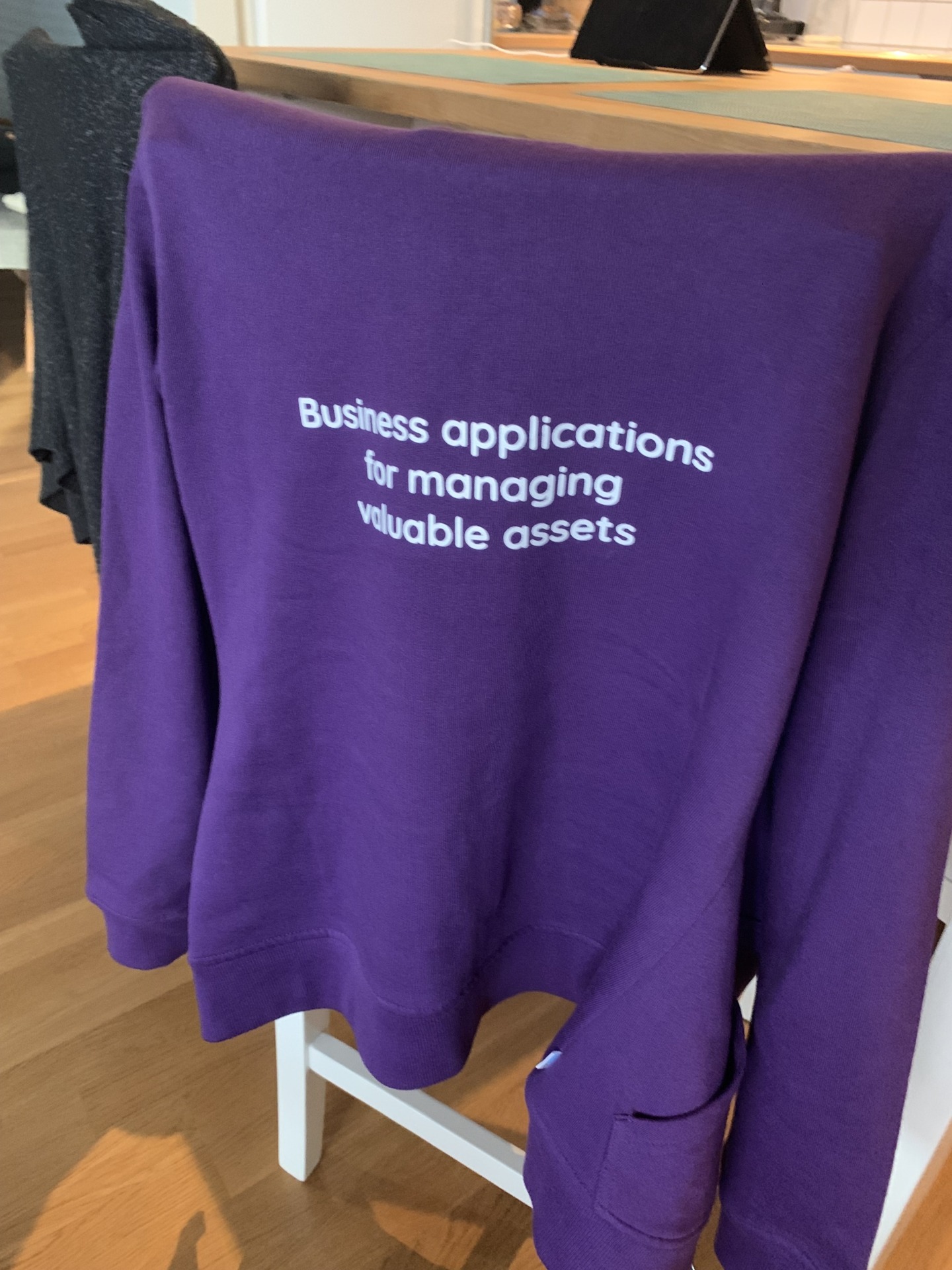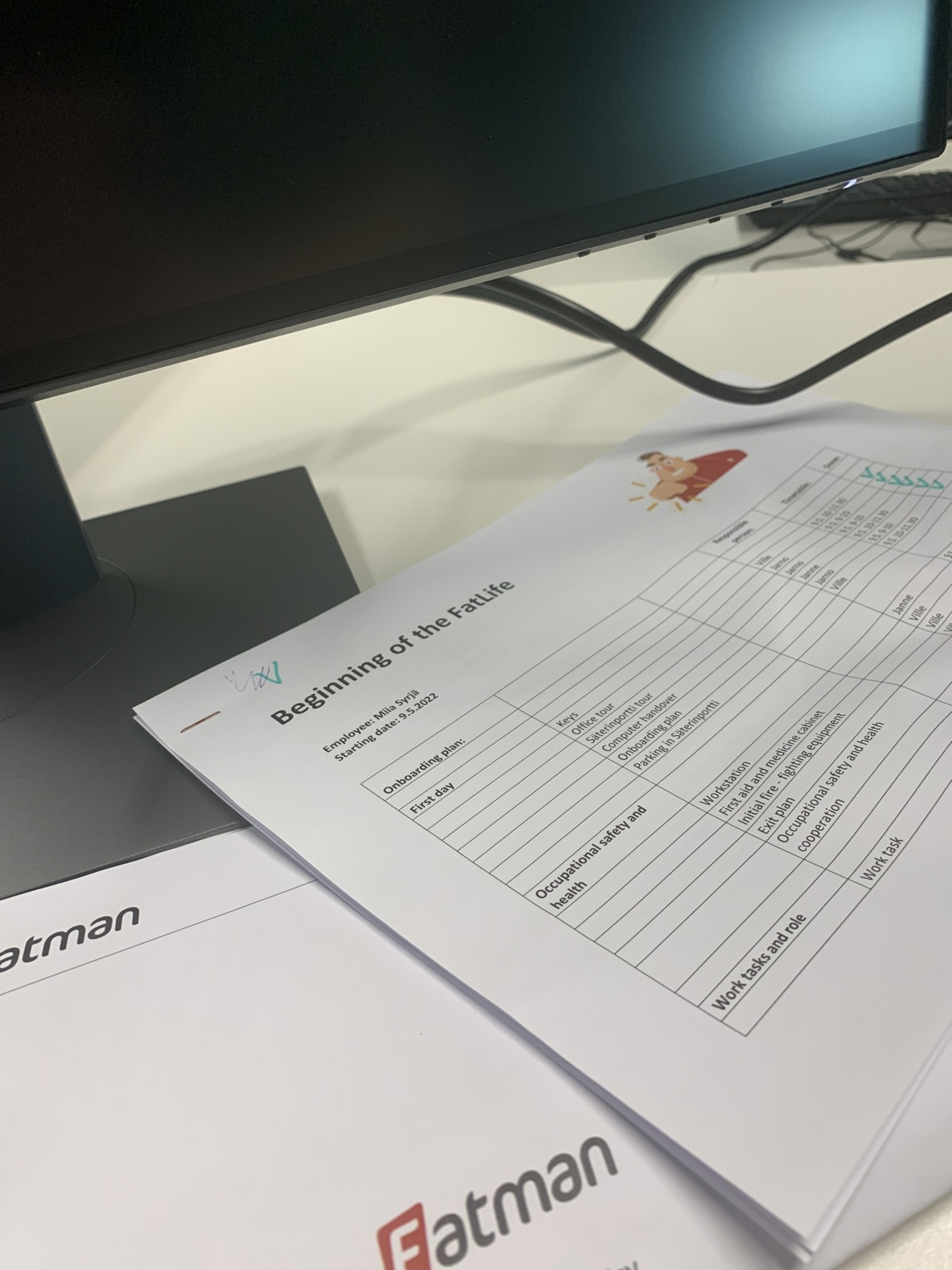FatLife blog: Miia tells us what it was like to be part of Fatman’s trainee program

Tell us a little about yourself. Your education history, interests, anything you want to mention?
My background is in the events industry, where I worked for a bit over a decade. I’ve always been interested in project management but also more broadly in process and business development, and at some point, I started to long for a project with a longer life cycle than the days/weeks/couple of months that they tend to last with events. This led me to Business IT studies at Haaga-Helia, where I was able to attend the classes very flexibly while still working full-time.
As for personal interests, I think it’s easiest to describe through what kind of gifts I’d like to get: Any kind of experience (immersive theater, escape room, crafts class) or toys and gadgets any 8-year-old would want. Like Legos. Or robots. Ooh, or science and magic kits! To balance out my hyperactive inner life, I like to do different kinds of circus and flow arts like poi spinning and hoop dancing.
Why Fatman? Why did you choose to apply for this trainee position?
I was looking for my first job in IT, a place where I could do my internship – and preferably my thesis – and came across Fatman’s ad through Haaga-Helia job teaser. The description seemed intriguing and included all the things that interest me. Also, the amazing video starring our CEO Ossi really hit home with all the supercool effects and elegant style. I applied immediately after seeing it.
So, what’s it like to work at Fatman? Tell us about your normal day as a trainee, what were the most interesting tasks?
The first few weeks were a typical information flood, but the well-structured onboarding plan and the supportive atmosphere helped to stay onboard. The first few months we focused heavily on learning all about our product, Frame and in general Fatman processes.
The average day during the trainee period would include sitting down with one of our Product Owners to go through the current Helpdesk issues, attending internal and external project meetings and creating simple development tasks to Jira. The more we learned about the product and processes, the more we were able to start investigating, solving, and answering the user issues and customer requests independently.
The best tasks were the ones where I was able to figure out something on my own for the first time, or where I noticed that some logic that felt impossible to comprehend before, finally made sense!

Were you able to make use of the experience you gained during your studies, did they prepare you for the working life and work culture?
There definitely has been some things that I remember reading about but had no previous real-life experience of, besides school projects. It has been really interesting to see for example how agile and scrum methods are followed in our two week sprints, and on the other hand how the customers operate in the traditional waterfall project management ways. In addition to school project courses, I feel I’ve also been able to utilize my prior experience quite nicely. Customer support and project management in different fields doesn’t differ all that much – in the end it’s always about people and communication.
Another difference I’d like to point out with school projects and working as Fatman Trainee is the offered guidance and support. At school most or all the course tasks were always self-guided and on your own responsibility, as there are no superiors or managers. Teachers are of course there to help, but there’s no one supervising your progress on a personal level. As a trainee it was a nice experience to be able to focus on the task at hand, and not worry too much about managing your own workload and thinking of what all tasks should get done. I felt the trainee-period was more learning than result oriented, which was very motivating and reassuring.
What will your role be after the Trainee program at Fatman company? Did your experience during the Trainee program have any effect on the determined role?
During the trainee period we had weekly check-up discussions with Jarno, our CE-team supervisor. The topic of possible future roles was brought up quite early on in these 1-on-1 meetings, and so it was possible to already focus some of the trainee tasks based on sparked interests and aspirations.
I am one of those people who aren’t afraid to admit I’m (just a bit of) an excel-enthusiast, so when I learned about Frame Lease management and IFRS16, it immediately piqued my curiosity. After completing the roller coaster of “Fatman IFRS16 Math classes” I was still onboard and determined to continue with the Fatlife. Now I work as a Project specialist, assisting with customer feature sales and projects, and specializing in IFRS16 implementations.

What do you expect from the future?
I’ve always liked to work in between the technical team and the customer, making sure that the customers’ needs are understood correctly and that the delivering team has all the information and tools to make it happen. In the field of software development, I would want to expand this towards user experience and service design, to deepen my understanding of customers and end users.
On the other hand, it is also important for me to be able to develop the surrounding work culture and processes, and to drive meaningful change where needed. I see Fatman as a place where all these things are possible, and where I (or anyone really) can try out different kinds of paths and responsibilities quite flexibly.
What is your advice to people who are starting their career and seeking that dream job?
Whether you are looking for your first job ever, or are someone changing fields, I highly recommend looking at all the different Trainee programs out there to find the right one for you. Many companies have annual or even bi-annual trainee programs with different focus areas and roles. And don’t worry if you’re not yet 100% sure what your dream job would be – Trainee programs are a good opportunity to see what interests you most.
Remember to also document all your school and hobby projects and start building your portfolio from the get-go. If you’re like me, and need some pre-defined projects to get started, join different Hackathons like Junction, Dash Hack or Mimmit koodaa hackathons and workshops. These are also great events to network, share experiences and get inspired!
